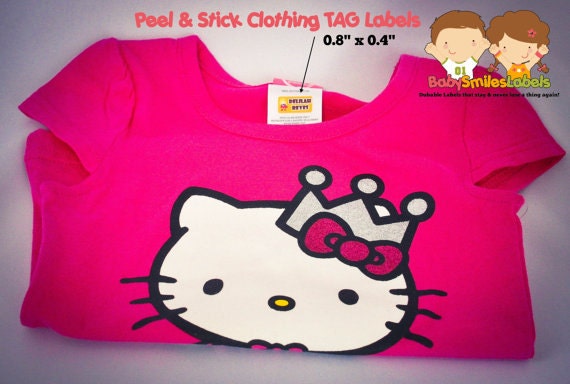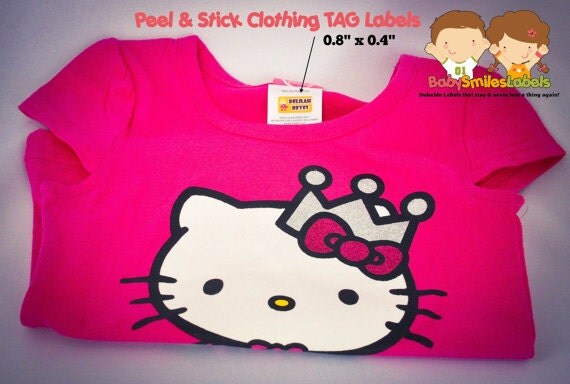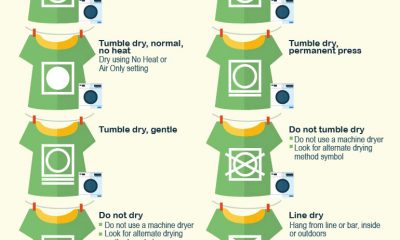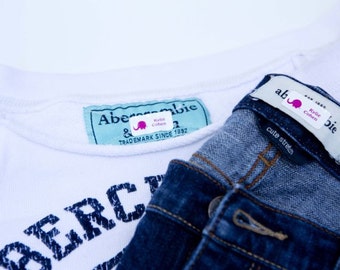39 is it illegal to sell clothes without care labels
UKFT Garment Labelling Guidance: Get a GINETEX care label ... However, it is necessary to have an origin label if, without such a label, the consumer could be misled as to the true origin of the garment. For instance, if a garment carried the British flag on it but it was made in Hong Kong, then the garment should include a label to that effect. Fraudulent origin labelling is illegal. Reselling: What is a Reseller and Is it Legal - StartupBros A reseller is an individual person or business that buys a product, marks up the price and sells it for a profit. It's the middle-men between manufacturers and customers. Resellers can be 4 different people: Distributor: Buys a product from the manufacturer and resells to either a wholesaler or retailer. Wholesaler: Purchases the product from ...
OUR BLOG - Global Clothing Label and Packaging Solutions Clothing Labelling laws protects consumer In the same way food companies can't claim something is suitable for vegetarians when it's not, or Coca-Cola can't claim to be sugar-free, the public are protected from false or misleading statements on the things they buy. This law extends to the information on clothing labels.

Is it illegal to sell clothes without care labels
PDF RESELLERS GUIDE TO SELLING SAFER PRODUCTS - CPSC.gov It is illegal to sell any recalled product. • Search Recalls: SaferProducts.gov. has a listing of CPSC recalls and consumer reports of harm related to consumer products. Review the list of recalled products before taking a product into inventory or selling it. You can also receive information about CPSC recalls by subscribing to the CPSC's Clothing and Textiles Regulations in Canada: A Complete Guide Textile products manufactured, imported, advertised or sold in Canada are subject to the Canada Consumer Product Safety Act (CCPSA). Products that are non-compliant with the Act and regulations are prohibited to be imported and sold in Canada. US Law Label Requirements & States with Tagging Laws Law Labels must describe the filling materials of the article as a percentage of those filling materials by weight. Example: 80% Polyurethane Foam, 20% Polyester Fibers. Currently 31 states, and Canada, require law labels. The products requiring law labels in each state varies, as does the labeling requirements.
Is it illegal to sell clothes without care labels. T-shirt Printing With Labels Done Right! - Printsome Insights It's not necessary for labels to be sewn in or printed directly on the garment. Swing tags do the job and it's also fine for the information to appear on the product's package. As long as the required information is there with the product at the time of sale (and legible!) your back is fully covered. Laws on Clothing Label Requirements - Legal Beagle If any harm could come to the garment, it should be noted. For instance, if a garment cannot be ironed, the label should state "Do Not Iron." Care labels should be clear and legible and durable enough to last the life of the garment. Placement All of the required labeling information can be included on one label or separate labels. FDA Rules & Regulations For Selling Handmade Goods ... For example, the state of Minnesota allows homemade sellers to sell their products online, at farmer's markets, at public events (such as fairs), and out of their homes. However, restaurants, roadside stands, and retail stores are all prohibited. Next, you'll need to get familiar with labeling requirements. Laws on clothing label requirements - eHow UK The information required on clothing labels is governed under two separate laws established by the Federal Trade Commission (FTC). The Textile and Wool Acts require that labels contain three pieces of information pertaining to the garment: fibre content, country of origin, and manufacturer, importer or dealer.
Labeling Organic Products - Agricultural Marketing Service Produced without excluded or prohibited methods, (e.g., genetic engineering, ionizing radiation, or sewage sludge) Produced using allowed substances; Can a product be labeled "organic" without being certified? If you make a product and want to claim that it or its ingredients are organic, your final product probably needs to be certified. Product safety rules and standards | business.gov.au If you're a supplier, you must comply with mandatory standards to sell products in Australia. You must also comply with other product safety rules such as product bans and recalls. Suppliers can include retailers, wholesalers, distributors, importers or manufacturers. Mandatory standards, product safety, bans and recalls are law. Clothes Captioning: Complying with the Care Labeling Rule ... When to Label Garments Domestic manufacturers must attach care labels to finished products before they sell them. Importers must ensure that care labels are attached to products before they sell them in the U.S., but care labels don't have to be attached to products when they enter the U.S. Labeling Clothing Supreme Court: You Bought It, You Own It, You Can Resell ... The CIC is a joke in itself. Yes, selling coupons, or copies of coupons is illegal. Many websites get by with selling coupons, because they state they are giving you the coupon, you are paying for their time on clipping, sorting, and shipping them. This in itself has been debated for years on weather it is legal or ethical. To each their own i ...
When is Unauthorized Use Not Trademark Infringement ... United States law allows the holders of federally registered trademarks to sue others who use those marks without permission, when the use in question causes a "likelihood of confusion" to actual or potential customers. Threading Your Way Through the Labeling Requirements Under ... If you manufacture, import, sell, offer to sell, distribute or advertise products covered by the Textile and Wool Acts, you must comply with the labeling requirements. You are exempt if you are: 4 a common carrier or contract carrier shipping or delivering textile products in the ordinary course of business US Law Label Requirements & States with Tagging Laws Law Labels must describe the filling materials of the article as a percentage of those filling materials by weight. Example: 80% Polyurethane Foam, 20% Polyester Fibers. Currently 31 states, and Canada, require law labels. The products requiring law labels in each state varies, as does the labeling requirements. Clothing and Textiles Regulations in Canada: A Complete Guide Textile products manufactured, imported, advertised or sold in Canada are subject to the Canada Consumer Product Safety Act (CCPSA). Products that are non-compliant with the Act and regulations are prohibited to be imported and sold in Canada.
PDF RESELLERS GUIDE TO SELLING SAFER PRODUCTS - CPSC.gov It is illegal to sell any recalled product. • Search Recalls: SaferProducts.gov. has a listing of CPSC recalls and consumer reports of harm related to consumer products. Review the list of recalled products before taking a product into inventory or selling it. You can also receive information about CPSC recalls by subscribing to the CPSC's







Post a Comment for "39 is it illegal to sell clothes without care labels"